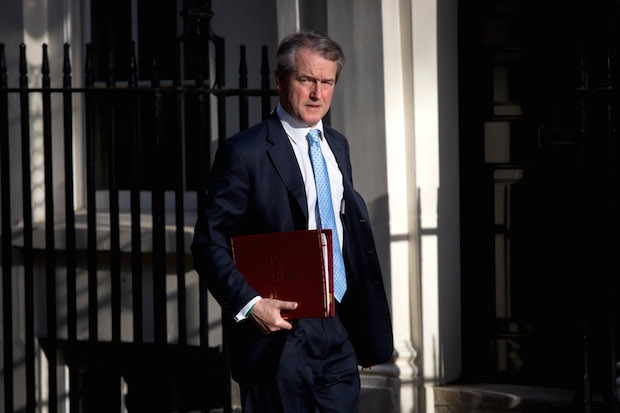There are two reasons why David Cameron’s cull of the ‘Uglies’ – the Conservative ministers who don’t perform well on camera – had to be so vast. The first is that the Tories need an unprecedented increase in support in order to secure an outright majority – but they have a weak brand that doesn’t appeal to the electorate. With the exception of David Cameron, Tories don’t appeal to the public – because they don’t look like them. That’s something that couldn’t have be fixed with a little light pruning, lopping off just one or two grey-haired junior ministers.
The second is that Cameron needed new, different faces to take advantage of Labour’s vulnerabilities. We’re just months away from the election but Ed Miliband still hasn’t won public confidence in his leadership. People think he’s weak, and the public don’t like his Shadow Cabinet either. Labour doesn’t have enough time to reverse the situation, so even though its troops might fight more convincingly over policy, it is the fight to win on personality that is the Tories’ greatest opportunity for 2015.
The reshuffle was the right decision electorally, but the spurned Uglies are set to cause trouble for David Cameron. Many of them are seething at the sidelining of loyal party servants who represent the more traditional wings of the party. The more realistic among these tormented souls know, however, that whatever their discontent with team Cameron, they are far less appealing to the electorate than he is – and they have no attractive figurehead who could change that situation.
So they are biding their time. They know that the next Parliament spells huge trouble, even if Cameron does find himself back in No 10. If he forms another coalition or a minority government the Conservative party will implode in existential angst at not having won an election in a quarter of a century. And any Conservative government without a stonking great majority will consume itself in internecine fighting over Europe.
The uncertainty over Cameron’s prospects in the next Parliament threatens to become a major distraction in the election campaign – unless he can develop a narrative that quashes it. The most direct option is to set out a positive programme of new ideas and reform for the next Parliament, which is separate from the issue of Europe, and show people something more than just a ‘long-term economic plan’. Linking the government’s performance on the public finances with policies that lead to an increase in living standards is critical to success at the ballot box. In that sense the content of the Conservatives’ manifesto is crucial.
All of which leads us back to the reshuffle. The biggest move, arguably, was of Michael Gove from the schools brief. He was, according to Ben Page at Ipsos Mori, the most unpopular education secretary since polls began asking 15 years ago. So it’s no surprise that David Cameron wanted to silence the noise and controversy around him.
But Gove was also education’s biggest reformer for generations, and reform of any public sector shibboleth is controversial, as even the emollient Tony Blair found. And the task Gove was setting out to tackle – shaking up the system so that it no longer consistently fails our poorest children – still needs to be done with the same pace and zeal as he applied; or progress on this vital agenda will stall.
Similarly, who will grip the crisis of unsustainable demographic pressure on the NHS and social care systems, both of which are now in desperate need of reform? What about squaring the contradictory desires to not upset anyone on planning while also building more homes? These massive policy issues will not melt away with the arrival of the election campaign – they will get greater exposure.
It is right to shake out the curmudgeons, malcontents and underperformers from a cabinet. But no party can rely on having more people preening into cameras. Tough policy problems require people with the guts and zeal to think big and take on serious reforms. Let’s hope the Uglies’ replacements are up to the challenge.
Sean Worth is the founder of Westminster Policy Institute and a former senior policy advisor to the Prime Minister






Comments